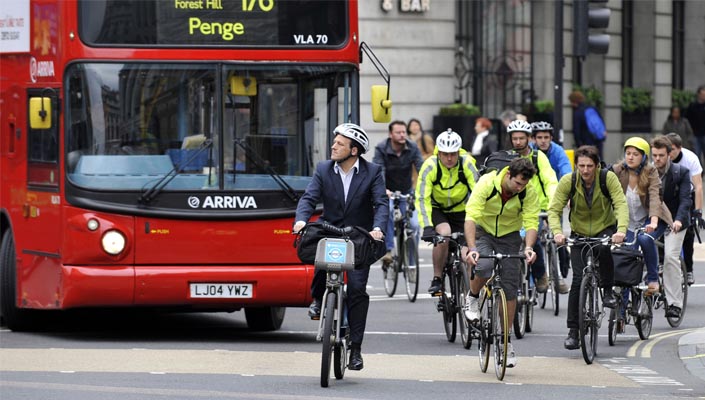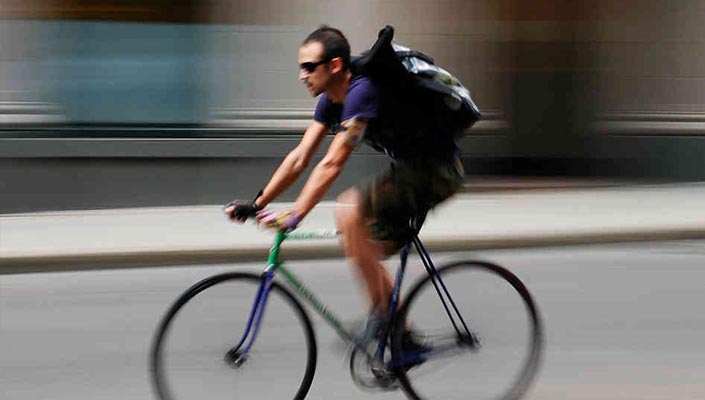There are many options available when buying a commuting bike. We have created a list of 10 things to look for or ask yourself to ease the process.
1. Type of bike
A commuting bike is basically any bike that you use as transport to work or other engagements; if it has two wheels and pedals it will get you there...eventually. There are some bikes that are better suited to riding consistently to work each day and these are the ones you should be looking at.
Most brands market specific bikes for commuting. Without going into specifics, look for bikes labelled as urban or city, flat bar road, or sport hybrid. These terms will usually get you into the correct area for an efficient purpose-built commuting bike.
To go further into this, why not start with "Are these 5 bikes really all commuters?" This article is a brilliant demonstration of different types of possible commuting bikes.
2. Distance
How far are you going to be riding daily/weekly? Distance will have a big impact on the quality of the bike you will need. Cheap bikes wear out quickly and don't last with day-in, day-out riding - especially in all sorts of weather conditions. A more expensive bike will have a robust and reliable drivetrain (gears, chain, cranks), good brakes, a light frame, and solid wheels. All these are necessary to make commuting a joy rather than a chore.
3. Versatility
Is the bike specifically for commuting or are you planning to use it for all your cycling? Buying a road bike with thin tires will get you to work quickly and effortlessly, but if you also want to ride through the park with your kids it will be a hassle. There are options that are more versatile: using a mountain bike and swapping tires depending on the ride is one way.
Whatever you choose, just remember some bikes are very specifically designed to do one job only.
4. Conditions
Check the route. What are the road/bike path conditions like? Will your trip require cutting through a park or loose surfaces like gravel? The bike you choose is also dependent on the route you take to work. A consistently rough road or gravel may require a more robust bike than if your commute is on perfectly smooth tarmac.
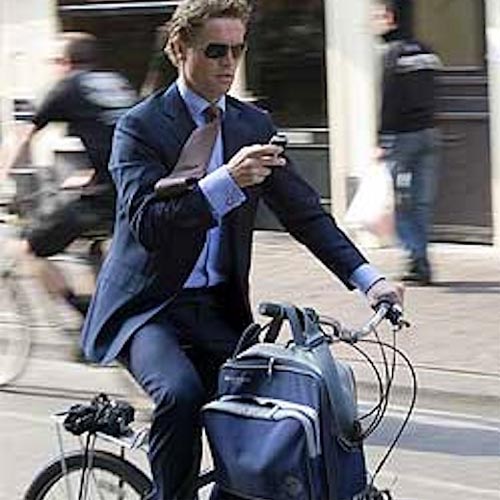
image: 8tracks.com
Rough roads may mean getting a bike with front suspension or wider rims.
5. Tires
Tire choice is very dependent on conditions. Tires can be very narrow for speed and efficiency or relatively wide for all-round riding. A good tire choice for commuting is one with a puncture resistant layer, especially if your typical route is regularly covered in broken glass or other urban debris. These heavier tires won't roll as well as a thin light one, but there is really nothing worse than getting a flat on the way to work - a good solid tire can help prevent this.
A tire with a width between 28mm and 38mm is a good place to look. 28mm is towards the efficient, fast, sporty end, and 38mm is wider for better puncture resistance and comfort.
6. Suspension or rigid
Do you need front suspension forks? For typical city riding they are not a necessity, but can help with vibrations from rough road conditions. Generally speaking, a city bike with front suspension will be less sporty - that is to say less efficient at getting power down than one without. It may come down to comfort versus performance.
Remember that suspension on bicycles is a relatively modern phenomenom. Before the 1980s every bike was basically rigid so, unless your commuter is going to be used for mountain biking, you may end up paying for something that you don't actually need.
7. Wheel size
Commuting bikes ideally use 700c wheels (as found on any standard road bike). These wheels are obviously faster and more efficient (less effort for reaching and maintaining speed) than smaller diameter types. If you decide to use a mountain bike you will have the choice of a few different diameters. A 29er mountain bike wheel is basically the same diameter as a 700c road wheel - although with a much wider rim which you can mount the fatter off-road tires to. While not as fast and efficient as an outright road wheel the ability to use chunky tires. This can be a good "best of both" worlds option.
8. Brakes
Disc or rim? Disc brakes are perfect for wet and muddy conditions as they retain all their power even when the weather gets really bad. This also makes them perfect for an urban assault, every season of the year. Modern disc brakes are lightweight, affordable and easy to use and are also found on just about every bike, including road bikes.
With this in mind we would say that for a robust commuting bike disc brakes are probably the way to go.
9. Attachments
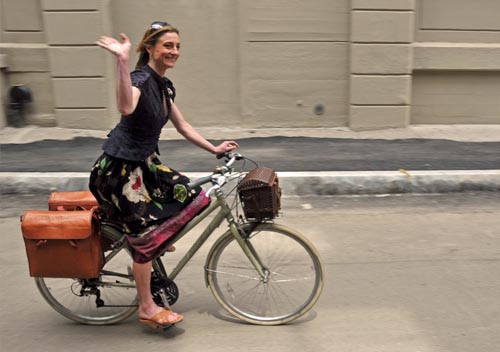
image: velojoy.com
Proper commuting bikes are setup with mounting points on the frame and forks for pannier racks. If you intend to carry a lot of stuff for work then this is essential. You could just get a good backpack, but loading up your bike is more comfortable, safer, and just a lot easier in the long run.
10. Talk to your shop
Lastly, talk to your local bike shop. Many bike shop staff ride to work themselves and are a gold mine of information for cycling in the local area. Ask them what they recommend for riding to work.
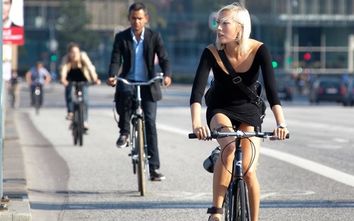
RELATED ARTICLE:
Choosing a commuting bike on a budget
It seems commuting by bike makes more sense every year as vehicle costs rise and demands on our time increase. One answer more and more people are turning to: commuting by bicycle... READ MORE
